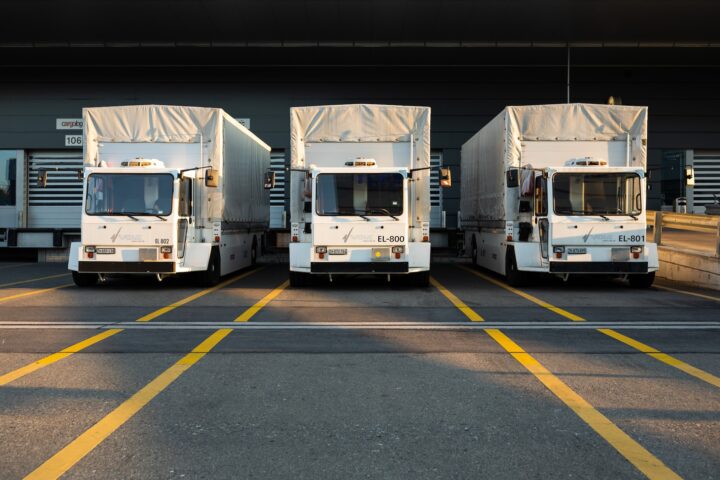The Future of Fleet Management: Trends to Watch
The world of fleet management has come a long way from simple maintenance scheduling and route planning. Advancements in technology, sustainability concerns, and changing patterns of mobility have combined to usher in an era of transformation. As businesses and transport systems alike anticipate the future, it’s important to understand the key trends shaping the fleet management landscape.

1. Electrification and Alternative Fuels
With global concerns about climate change and environmental sustainability, the transition to electric vehicles (EVs) is no longer just an option—it’s imperative.
For fleet managers, this means:
- Investing in electric fleet vehicles: As more vehicle manufacturers introduce electric models, the range of choices for fleet vehicles expands.
- Infrastructure planning: Deploying EVs requires infrastructure, such as charging stations. Fleet managers will need to invest in or access this infrastructure to support their electric fleets.
- Cost benefits: Although the initial investment might be higher, the reduced fuel and maintenance costs of EVs can lead to long-term savings.
Additionally, for businesses not yet ready for full electrification, alternative fuels like biodiesel, hydrogen, and compressed natural gas present cleaner options to traditional gasoline.
2. Telematics and Advanced Analytics
Telematics systems, which use GPS and onboard diagnostics, allow for real-time tracking of vehicles, monitoring of driver behavior, and collection of a vast amount of operational data.
This surge in available data allows for:
- Predictive maintenance: With continuous monitoring, problems can be identified before they lead to breakdowns, reducing downtime and saving costs.
- Improved driver safety: By monitoring driver behavior, fleet managers can identify risky behaviors and provide timely feedback, potentially reducing accidents.
- Operational efficiencies: Route optimization, based on real-time traffic and weather conditions, can reduce fuel consumption and improve delivery times.
3. Autonomous Vehicles
While still in the developmental stage, autonomous vehicles (AVs) are set to revolutionize the transport industry. When it comes to fleet management:
- Safety: AVs can significantly reduce human error, which is a leading cause of accidents.
- Operational costs: Labor costs might decrease as the need for human drivers reduces over time.
- 24/7 operations: Autonomous fleets can potentially operate around the clock, improving efficiency.
However, transitioning to AVs will also pose challenges, such as regulatory hurdles, infrastructure adaptation, and public acceptance.
4. Integrated Fleet Management Systems
The future will see a move away from isolated software solutions to more integrated systems. These systems will bring together vehicle tracking, maintenance scheduling, driver management, and more into a single platform. Benefits include:
- Streamlined operations: With all data and tools in one place, decision-making becomes more efficient.
- Better data insights: Integrated systems can provide a holistic view, aiding in long-term strategic planning.
5. Sustainable Fleet Management
Beyond electrification, sustainable fleet management will take center stage. This encompasses:
- Eco-driving training: Training drivers to adopt fuel-efficient driving practices can significantly reduce carbon footprints.
- Lifecycle assessments: From production to disposal, considering the entire lifecycle of fleet vehicles can lead to more sustainable choices.
- Recycling and repurposing: As vehicles reach the end of their operational lives, sustainable disposal and repurposing can reduce environmental impact.
6. Enhanced Driver Experience
As much as technology plays a central role, the human element remains crucial. The future will see more emphasis on:
- Driver wellness programs: These can help reduce stress and burnout, leading to better retention rates.
- Advanced training: With the rise of new technologies, continuous training becomes essential, ensuring drivers are equipped to handle modern vehicles and systems.
7. Connectivity and the Internet of Things (IoT)
The Internet of Things (IoT) refers to the interconnection of devices, allowing them to collect and exchange data. In the realm of fleet management, this translates to a new level of connectivity between vehicles, infrastructure, and even the cargo being transported.
Implications include:
- Real-time cargo monitoring
- Vehicle-to-Vehicle (V2V) communication
- Infrastructure interaction
By harnessing the power of IoT, fleet managers can gain a more holistic view of their operations, leading to enhanced efficiency and safety.
8. Customization and Personalization
As technologies advance, so does the possibility for tailoring fleet management solutions to the specific needs of each organization. Gone are the days of one-size-fits-all solutions. In the future, we can anticipate:
- Modular software solutions: Instead of bulky software suites, businesses can choose modules that cater to their unique needs, whether it’s advanced route planning, detailed cargo monitoring, or in-depth driver behavior analytics.
- Vehicle customization: Beyond just branding, vehicles can be tailored to serve specific purposes. This could mean specialized interiors for cargo, advanced onboard amenities for long-haul drivers, or integrated tech systems for real-time communication.
- Personalized driver interfaces: Based on individual driver preferences and needs, the onboard systems can adjust settings, routes, and even provide personalized feedback.
Conclusion
The future of fleet management promises to be dynamic, driven by technological advances and a global push for sustainability. Embracing these trends not only prepares businesses for the future but also offers opportunities for improved efficiency, cost savings, and environmental stewardship.


